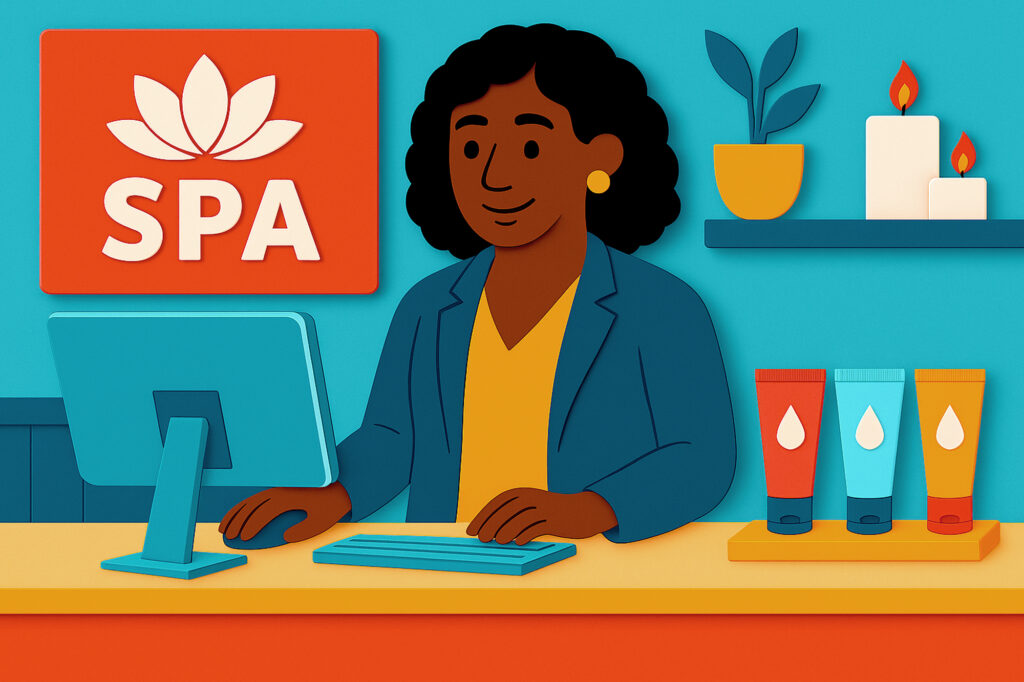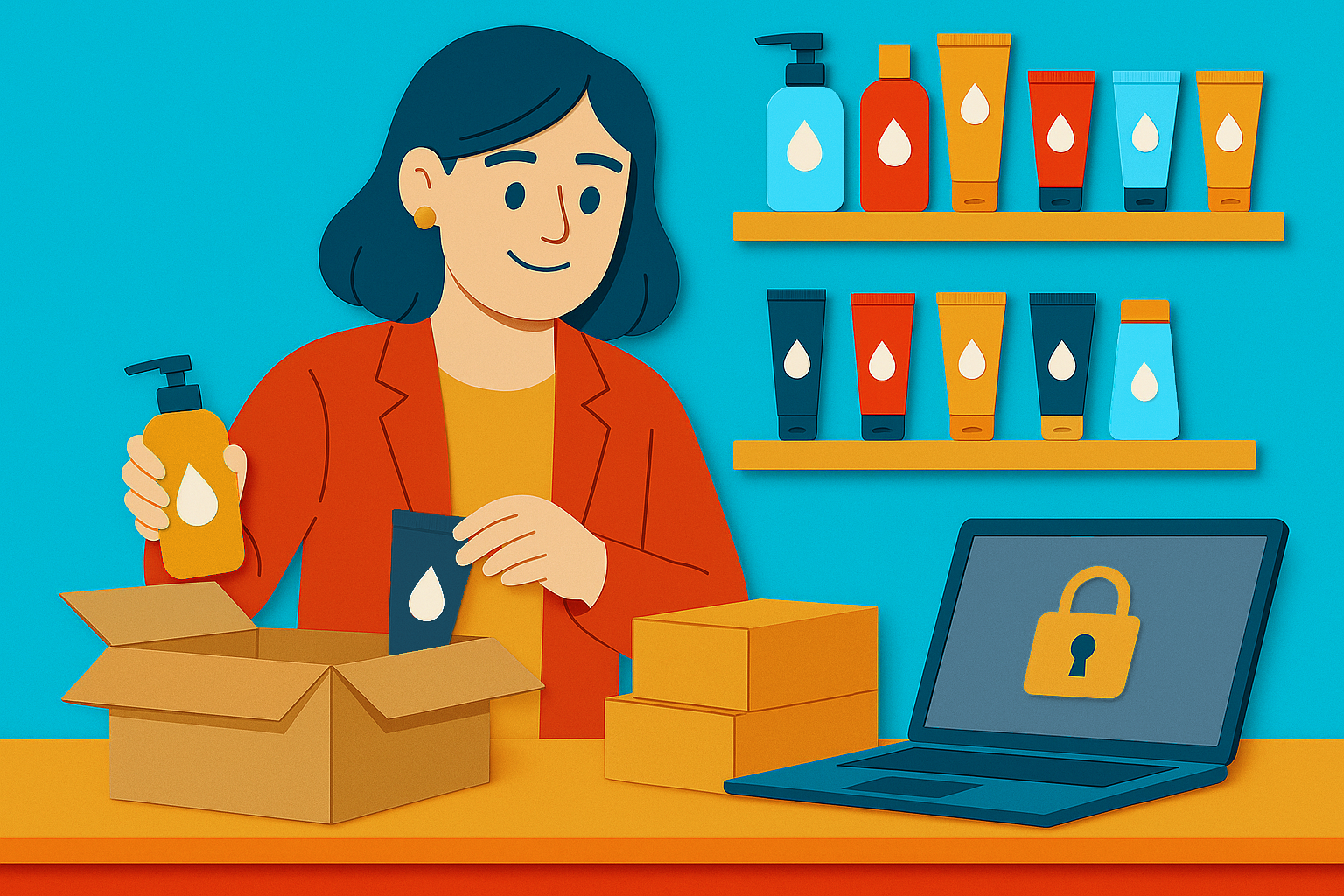Contents
Ok, you’re probably heading into this post thinking, well of course a web designer is going to tell me I need a business website! And you’re right — I am! But I’ll also tell you that small business websites are becoming less important when it comes to customer conversions for local businesses.
GASP! Did she really just say that out loud? Er, write it quietly? I did, but there is a catch. (Isn’t there always?) Let me start by asking you one simple question:
Do you think your business needs a website?
Was your answer ‘no’? If it was, then here’s my response: delete it.
Go ahead. Wipe it clean. Delete your entire business website. Cancel your subscriptions, cancel your hosting, your Wix account, get rid of your ceo@mylocalbusiness.com email.
Doesn’t quite feel right, does it? Well, that’s because having a website is important, and deep down, you know it is.
But the reasons why are shifting with the times. Let’s dive into how, and the reasons why a website still matters in 2024.
Don’t need convincing that you need a website? Contact us today to learn about our website design and local SEO packages tailored specifically for small businesses.
Search Engines Are Data Collectors. Therefore, They Need Something to Collect.
It is extremely difficult to rank well in search — including as a location-based business — without a website. Why? Because Google and friends need to have something to “crawl.” That’s jargon for scanning your website for information, then listing it in search. If you don’t have a website, you literally have nothing to rank with.
Some main factors search engines use:
- Your website copy, which includes your keywords.
- Your business’s contact information.
- Your services or products.
- Your backlinks (we’ll explore that further in a moment).
- Structured data (called Schema Markup), which is embedded in your website’s code to tell search engines every important detail about your business.
- Fresh content curated to your local area — By now, we probably all understand the game: the internet wants content, content, and more content. And that includes your website, too. Google wants to know your site is “fresh” and continually has something new to offer potential customers.
A Note on AI
I’m sure you’re already sick of hearing about AI. And yet, we’re only at the beginning of how it’s about to change the world. But let’s stay close to home for now.
How will AI affect local businesses?
Well, I can write a whole post about this, and I probably will. But let’s quickly summarize how things are about to change.
Your internet searching is about to get insanely specific. Gone are the days of “pizza near me.” Here’s what search queries are going to look like now:
yoga classes 9am wednesdays $20 drop in santa clarita ca
Once you hit enter, Google will crawl all the data it can find and show the user the businesses that match the exact info they’re searching for.
And guess what? If you offer that but don’t have it listed on your website, your competitor just got that customer, and you didn’t even stand a chance.
This means that even if that customer never visits your website, AI will pull info from it to give them what they want.
Wow! It’s the future! Is it great? Is it awful? Honestly, I don’t know. Time will tell. But the lesson here is that right now, more than ever, you should have as much info as you can possibly squeeze onto your small business’s website. And hey, maybe this way AI will even do some of the selling for you. #agirlcandream
Your Website is Proof that Your Business is Real and Legitimate
Not having a website is like selling t-shirts out of your trunk at a concert. I mean, you know it’s not legit merch, but can you really be mad when your shirt falls apart in the first wash?
Similarly, if you were to come across a business on Facebook and became interested in hiring them, you would naturally head to their contact section. But if they had no info other than a phone number and a studman69@hotmail.com email address, well…you might think twice about hiring that business.
Having no website makes you look spammy, both to customers and to search engines. And there are so many scammers and fraudulent businesses out there. Granted, some of them are really good at looking real, but a website is one very easy way to look trustworthy to potential customers.
To take it one step further, be sure to include all of your info, including your mailing address, even if you don’t have a physical location. (You’ll notice our own footer has our mailing address listed). Customers like transparency, so they can know you’re an actual local business. Plus, business owner photos help to put a real face on your business, too.
Quick Tip: Stopping Spam
DO NOT list your email address on your website, unless you want a ton of spam. Use contact forms with anti-spam filters instead. If you have to, create separate emails: one for your website, and one for you as the business owner, and keep the second one private.
Customers Trust Info on Websites More than Directory Listings and Social Media
When asked which source is expected to have the most accurate and up-to-date contact information, this was how consumers responded:

According to a study done by Search Engine Journal.
- 56% of consumers expect local businesses’ websites to have the most accurate and up-to-date contact information.
- 32% believe Google Business Profile has the most accurate information
- And a scant 12% of customers trust online directories (like Yelp) to have the most up-to-date information
Of course, you benefit from having accurate information across the internet. But believe me, it is so easy to make typos. Between the places I’ve lived, my businesses, and postal mailing addresses, I’ve had 5 different zip codes in Santa Clarita ALONE. Have I made mistakes when typing my business info into online directories? You betcha.
No one would expect a business’s own website to have the wrong info. If you don’t know your own phone number, well, I guess you have bigger problems to start with.
Your Website is the Only Place on the Internet You Can Control
Having to comply with other websites’ terms of service sucks. Their algorithms suck. The whole experience sucks! Let me count the ways:
Social media is SPAMMY.
Spam comments, spam bots, fraudulent businesses, blackhat accounts. It’s a lot to deal with and keep up with. And websites like Facebook and Google leave it up to you to handle.
You have to play the algorithm game.
Oh, and the rules are a secret. Fun! Here’s a little tidbit I just learned: Facebook wants you to pay to get new followers for the optics of not looking like a fake business. But the followers you get will be of low quality. So they won’t interact with your content, and then Facebook will dock you using their algorithm for having non-engaging content. COOL, THANKS FOR WASTING MY MONEY!
You can get kicked off platforms for arbitrary reasons.
Sometimes it could be as simple as their system marking your content as violating terms of service when it doesn’t. It could be the wrong turn of phrase. Or a competitor could report you. Or someone could claim trademark infringement. (Did you know “boy mom” is a trademarked term? For real). It could be an accident, it could be malicious, it could be a banal glitch in the system. But then you find yourself suspended or even banned. And then what? You’re SOL.
Platforms change all the time.
As of July 31, 2024, Google has removed messaging from Google Business Profiles. Did a lot of customers message you through Google? (Which they constantly hounded us to turn on for years). If they did, that lead generator has disappeared for you OVERNIGHT. If not, that’s good. But what’s the next change they’ll make that does harm your business? Remember when Facebook used to show page posts to followers? It’s a fading memory now, but there was a time before you had to pay to boost posts for your own followers. Feels like a tall tale, doesn’t it?
These platforms are NOT your friends.
But guess who is? Your lovely website! It is your best friend. Your personal salesman, working round the clock to run your business exactly the way that you want! You can put whatever you desire on there and your customers will see and experience your business exactly how you intend them to. All without having any competitors get in the way of your message.
No matter what these platforms change, they cannot take that away from you.
Ready to make your website your digital home? We make websites that are designed to be mobile-fast, accessible, and with designs your customers will love. Contact us today to get started and get seen.
There is No Currency More Valuable than the Almighty Backlink
I’ll keep this section brief. Backlinks are basically what they sound like: links to your website from other websites.
These links are extremely valuable for getting ranked high in search. It’s also the toughest thing to achieve in SEO by legitimate means. (Needless to say, non-legitimate means will get you penalized by search engines).
But think about it: if a high-quality website (say, a regional news station) were to link to you because your content is so great, it makes sense that a search engine would want to pay attention to that. It means you’ve got something special; you’re a website worth users’ attentions.
Now, can spammy SEO companies create a bunch of junky backlinks to your site just to get more of them? Yup. But that’s exactly why domains have an “authority rating.” So, only fraudulent SEO agencies do things like that. Stay far away from companies like that. (Would you want to read a post about that? Let me know in the comments!)
But back to the point. You can’t get great backlinks if you don’t have a website. Period. End of sentence.
Customers DO Still Visit Websites
Google hasn’t taken over the planet just yet. (And after this anti-trust lawsuit, hey, maybe their market share will shrink in the future! Who knows!)
Customers still value small business websites when making decisions. A few points to consider:
- 22% of consumers check websites every time they are deciding on a local business
- 76% of people look at local business websites at least half of the time
- Only 8% of consumers never look at websites when choosing a business
Here are some whoppers specific to restaurants (Get it? Food pun!) According to a survey from MGH:

- 77% of diners visited a restaurant’s website before dining in or ordering out. Of that group, nearly 70% were discouraged from visiting the restaurant just because of its poor website.
- The vast majority of diners (69%) said a restaurant’s website helps them decide if they want to dine in, while 43% visit the website to decide if they want to order takeout or delivery.
- The biggest contributing factor to diners’ decisions to visit a restaurant after looking at its website were the items on its menu, and some diners even said that a restaurant website’s poor navigation, readability, or lackluster food photography may turn them off from ordering entirely.
Honestly, even I’m shocked by those numbers.
A Website is the Easiest Way to Provide Customer Service
Customer service is imperative for every small business. Only corporations like Amazon can get away with crap customer service. We don’t have that luxury (and you know, we have things like souls and ethics and values…)
Anyway, your website is by far the simplest way for you to provide customer service, no matter what type of business you’re in. Which also saves you a ton of time to boot.
Let’s make a list:
- Online bookings to make scheduling simple
- eCommerce stores for merchandise and online checkouts for services
- Customer support emails, portals, chats, and helper bots
- FAQs to answer your customers’ questions so you don’t have to (bonus: FAQs also help with search rankings!)
Conclusion
Hopefully you can see why it’s so important to have a small business website in 2024. There’s a reason we offer both website design and reputation management for local businesses here at CornerClicks. Both are absolutely imperative when it comes to boosting customer visibility. And it’s really hard to get your business new, organic leads if you don’t have both optimized. Running a business is hard enough already without having to constantly chase down new customers!
If you’re looking to build a website, optimize your existing one, or want someone to handle your reputation management for you, CornerClicks is here to help. Contact us today to learn about our convenient small business marketing packages and get started. We’re here to bring clicks to your corner.




